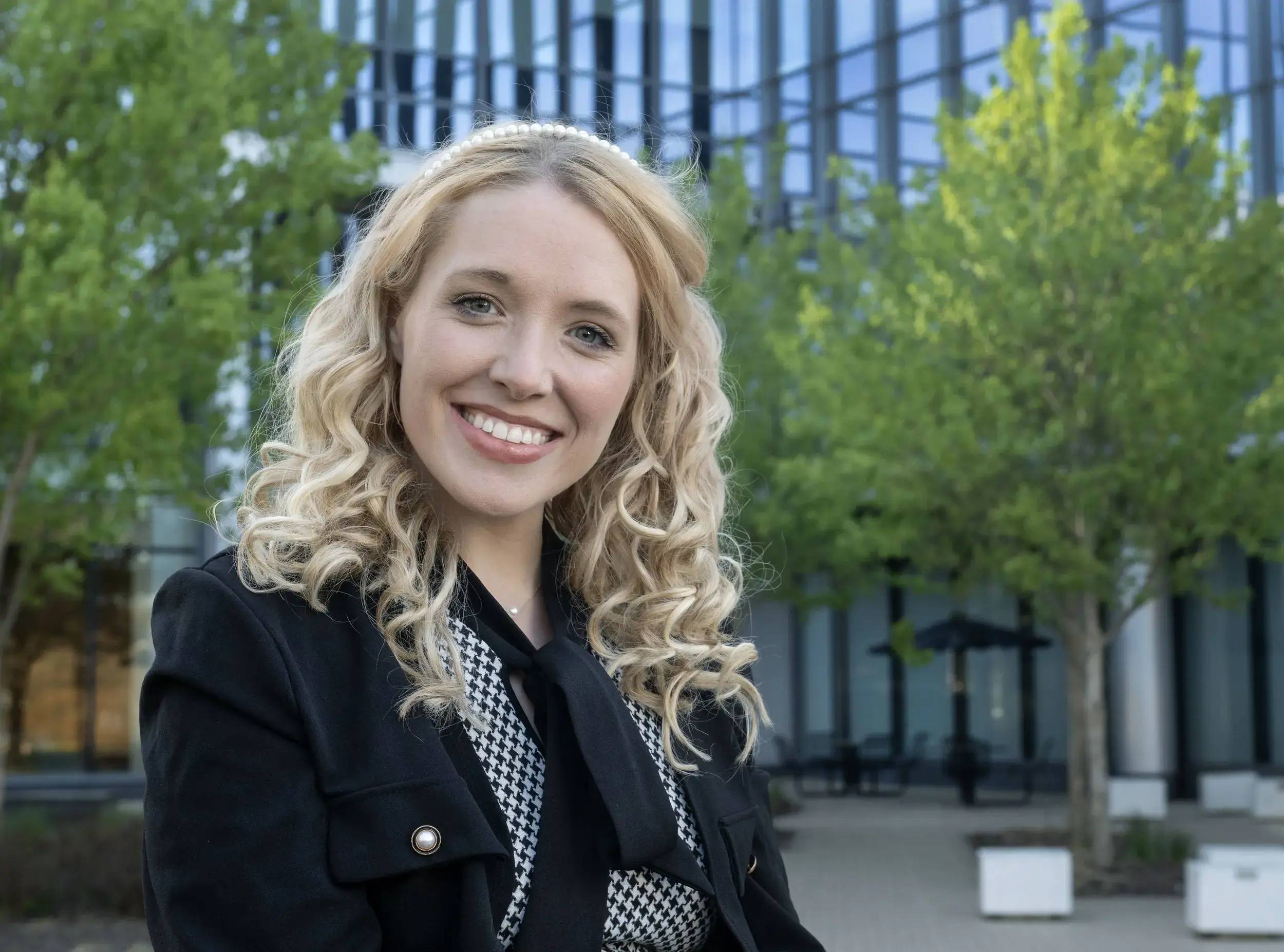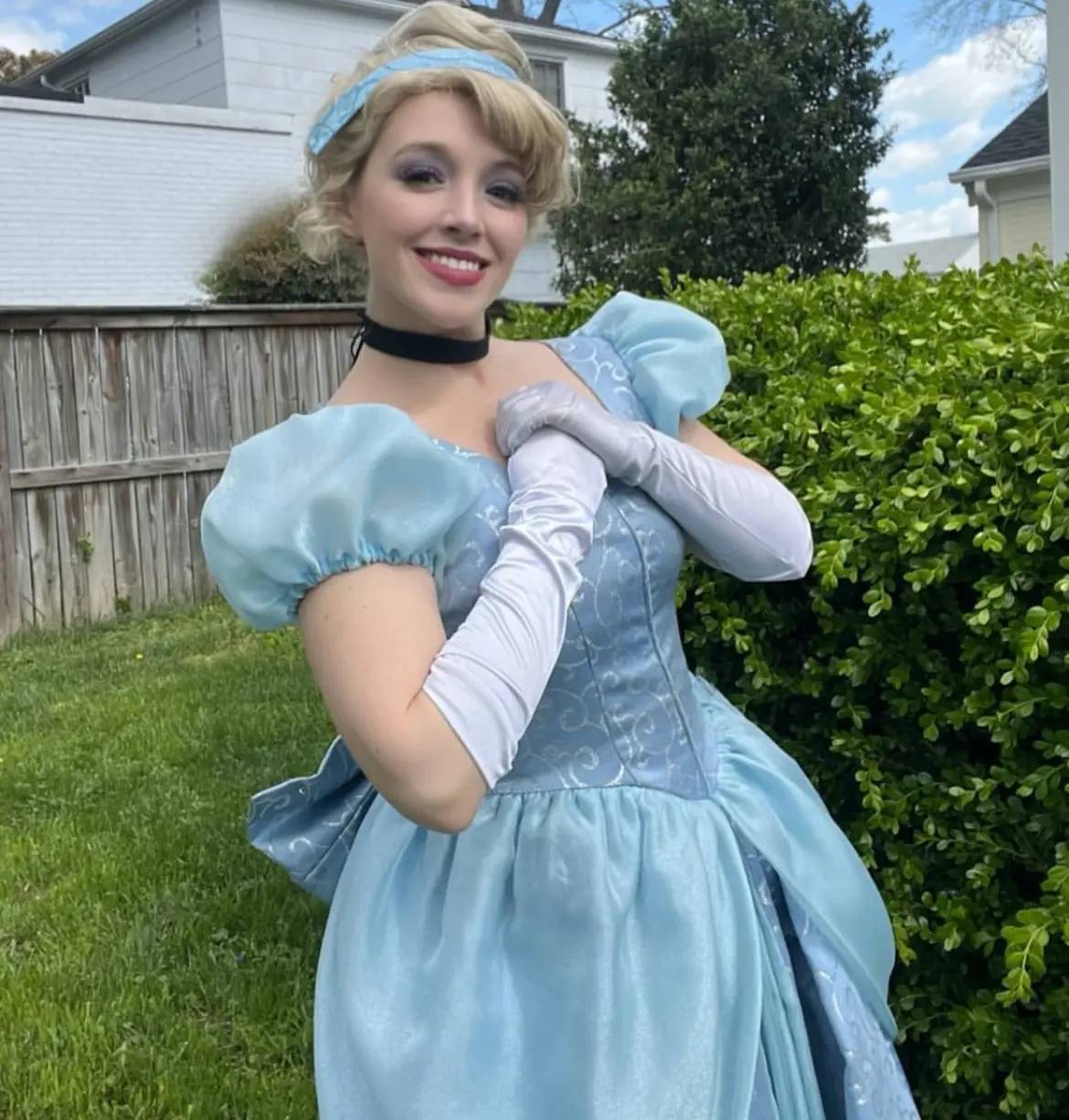Class of 2025: Health Ph.D. was a harmonious fit for speech language pathologist Megan Crawford
The working professional (and devoted singer) marks a first for the College of Health Professions program, and her research into swallowing disorders embraces an interdisciplinary lens.
 The sound of music led Megan Crawford to a career in speech pathology – and to a trailblazing route at Virginia Commonwealth University.
The sound of music led Megan Crawford to a career in speech pathology – and to a trailblazing route at Virginia Commonwealth University.
This spring, Crawford becomes the first speech language pathologist to earn her doctorate through the Health Related Sciences Ph.D. program in VCU's College of Health Professions. The program used to enroll only students who were affiliated with one of the college's departmental professions, but with those tracks recently removed, the door opened to students from multiple professions.
As the program's groundbreaking SLP, Crawford focused her coursework and research on swallowing – an incredibly complex mechanism – and assessing its related disorders, known as dysphagia.
“Being a singer was how I got into speech pathology,” Crawford said. “I always wanted to do health care, but I wasn’t quite sure in what exactly. I tried a lot of different things and couldn’t find the right thing. And then my mom suggested I look into speech pathology because there is a voice component to it. I thought maybe that would be a good way for me to combine my loves.”
Crawford had long had a love of singing in musicals, where strong breath support, voice and swallowing control is crucial for belting out showstoppers – as she has done in community productions from “Oliver!” to “Annie” and from “Cabaret” to “The Sound of Music.” Even during her Ph.D. studies, she found time to work as a character actor, attending birthday parties and community events as a Disney princess who sings for fans of all ages.
But her full-time work continued – she is an SLP at Bon Secours St. Mary's Hospital – and at VCU, she embraced the challenge of delving into dysphagia.
“Swallowing involves 32 muscles and six cranial nerves in the process,” she said. “A lot of things we can only tell by looking at the swallow, but with it all being internal, it's hard to tell.”
Crawford's research focused on health care practitioners' decision-making, particularly related to the impact of liquid restrictions for patients with post-stroke dysphagia. Her work reached across disciplines, including the fields of occupational therapy, speech, gerontology and statistics.
In Finland in May, she will present findings at the European Stroke Conference. She hopes to do the same at the American Speech-Language-Hearing Association conference – and to pursue a postdoctoral fellowship in dysphagia research.
“Our field is pretty new for swallowing,” Crawford said. “So, it's important to keep having this research and to keep pursuing these questions because there's still a lot of unknowns.”
Crawford earned her undergraduate degree in health communications at James Madison University and a master's of education in communication sciences and disorders from the University of Virginia. As an SLP, she performs swallow evaluations, using video fluoroscopy to assess dysphasia patients.
“We can see exactly what's happening with their structures, as well as with the food and drink, while they're swallowing,” Crawford said. “We can identify any areas that are troublesome.”

For her doctoral research, she went beyond medical technology to focus on clinical decision-making. She explored whether common practices – limiting or eliminating intake of thin liquids after an acute stroke, or favoring thickened liquids that are easier to swallow – helped achieve improved outcomes, including related to aspiration pneumonia and urinary tract infections.
In reviewing more than 1,200 patient charts covering a two-year period, and assessing variables ranging from age and geography to health history and dental conditions, Crawford found some surprises. They included a higher pneumonia risk even when more severe restrictions on liquids were in place – and that dysphagia itself was not associated with higher rates of types of pneumonia.
“That means that there are a lot of other factors, and we have a lot more to dig into,” she said.
Digging in from multiple angles is Crawford’s path forward and the one she already has been following.
At VCU, her dissertation advisor was Stacey Reynolds, Ph.D., the program director. She also studied under professors from varied fields, including gerontologist Tyler Corson, Ph.D., biostatistician Roy T. Sabo, Ph.D., and occupational therapy expert Virginia Chu, Ph.D.
“Health care is often unintentionally siloed,” Crawford said. “We have a lot of people with a lot of specialties. And I think sometimes we forget that the different body systems interact with each other. And so, we think about it from our perspective, but we don’t necessarily think about it from another side of things. … I’m very interested and want to explore swallowing as it relates to other body systems.”
Story by Dina Weinstein originally posted to VCU News.